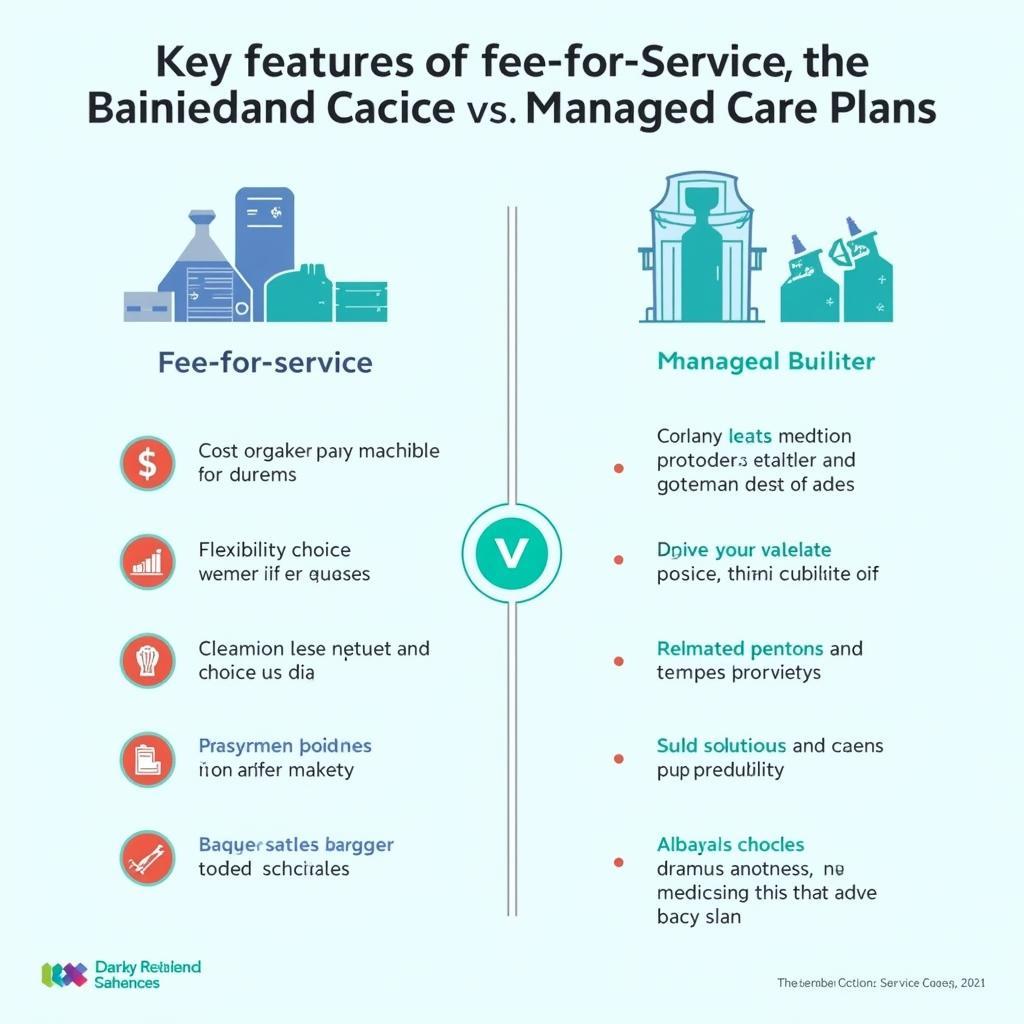What is Better: Medical Fee for Service or Managed Care?
Navigating the complex world of health insurance can feel overwhelming, especially when choosing between fee-for-service and managed care plans. Both models have advantages and disadvantages, and understanding their differences is crucial for making informed decisions about your healthcare.
This article delves into the core distinctions between fee-for-service and managed care, analyzing their pros and cons to help you determine which model best suits your needs and preferences.
Fee-for-Service: Paying for Each Service Individually
Fee-for-service is a traditional healthcare model where patients pay for each medical service separately. This means each doctor’s visit, test, procedure, and prescription incurs a separate charge.
Pros of Fee-for-Service:
- Flexibility and Choice: Fee-for-service plans offer unparalleled flexibility in choosing healthcare providers. You can see any doctor or specialist without needing referrals or worrying about network restrictions.
- Personalized Care: With the freedom to consult various specialists, you can tailor your healthcare team to your specific needs and preferences.
Cons of Fee-for-Service:
- Higher Costs: Fee-for-service plans often lead to higher overall healthcare expenses, especially for individuals requiring frequent medical attention.
- Administrative Burden: Managing individual bills for each service can be time-consuming and complex, involving extensive paperwork and potential billing discrepancies.
Managed Care: Coordinating Care for Cost-Effectiveness
Managed care plans prioritize cost-effectiveness and coordinated care. These plans involve a network of healthcare providers who have agreed to provide services at pre-negotiated rates.
Pros of Managed Care:
- Cost Savings: By negotiating lower service rates and emphasizing preventive care, managed care plans generally result in lower out-of-pocket costs for patients.
- Simplified Healthcare: With coordinated care, your primary care physician acts as a central point of contact, managing referrals, treatment plans, and overall healthcare navigation.
Cons of Managed Care:
- Limited Choice: Managed care plans restrict your provider options to those within the network. Going out-of-network often results in higher costs or no coverage.
- Potential for Delays: Accessing specialists may require referrals from your primary care physician, potentially leading to delays in receiving specialized care.
 Comparing Fee-for-Service and Managed Care
Comparing Fee-for-Service and Managed Care
Which Model is Right for You?
The choice between fee-for-service and managed care depends on your individual circumstances and healthcare priorities. Consider these factors when making your decision:
- Health Status: Individuals with chronic conditions requiring frequent medical attention may benefit from the cost-savings and coordinated care of managed care plans.
- Budget: If minimizing healthcare expenses is a priority, managed care plans typically offer lower premiums and out-of-pocket costs.
- Preference for Choice: If flexibility in choosing healthcare providers is paramount, fee-for-service plans provide greater freedom.
 Key Factors to Consider When Choosing a Health Plan
Key Factors to Consider When Choosing a Health Plan
“Choosing the right healthcare plan is about finding the right balance between cost, flexibility, and the level of control you desire over your healthcare decisions,” says Dr. Emily Carter, a healthcare policy expert at the National Institute of Health. “Carefully assess your individual needs and priorities to make an informed decision.”
Conclusion
Understanding the distinctions between fee-for-service and managed care is vital for making informed healthcare choices. By weighing the pros and cons of each model and considering your unique circumstances, you can select the plan that aligns best with your healthcare needs and financial situation. Remember to carefully review plan details, network coverage, and costs before making your final decision.
FAQs
1. Can I switch from a fee-for-service plan to a managed care plan or vice versa?
Yes, you can typically switch plans during open enrollment periods or if you experience a qualifying life event, such as job loss or marriage.
2. Are prescription drugs covered under both fee-for-service and managed care plans?
Prescription drug coverage varies depending on the specific plan. Review the plan details to understand what medications are covered and any associated costs.
3. What is a primary care physician (PCP), and do I need one in a managed care plan?
A PCP is a doctor who provides your primary healthcare services. In most managed care plans, you’ll need to designate a PCP who will coordinate your care and referrals.
4. What happens if I need to see a specialist who is out-of-network?
Out-of-network coverage varies by plan. Some plans may offer partial reimbursement, while others may not cover out-of-network services at all.
5. Where can I find more information about different health insurance options in my area?
You can compare plans and get personalized recommendations through the Health Insurance Marketplace or by contacting a licensed insurance broker.
Need further assistance in navigating the complexities of car service or have specific questions related to your vehicle? Feel free to reach out to our expert team via WhatsApp: +1(641)206-8880, or Email: [email protected]. We are available 24/7 to address your concerns and provide comprehensive support.

